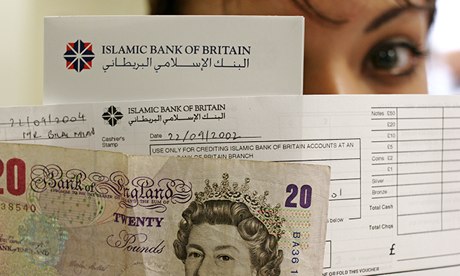The global Islamic finance sector is booming and the Sharia-compliant assets estimated to be over $1.4 trillion are likely to sustain a double-digit growth in the coming two to three years, said a report.The global growth of the Islamic finance market has continued unabated this year, undeterred by the uncertain recovery elsewhere in the world's financial markets, according to the Standard & Poor's (S&P) report.Regional heavyweightsThe two regional heavyweights and pioneers of the industry - the GCC and Asia (most notably Malaysia) are set to spearhead the growth, said Standard & Poor's in its report entitled "Islamic Finance 2014: We expect continued double-digit growth, and a push for regulation and standards."
Islamic finance remains a demand-driven market, with scarce supply, still hampered by a limited range of Islamic financial centers and their various regulatory frameworks. In our view, expansion and enhancement of existing centers, and a more transparent regulatory environment could build the momentum for the growth needed to break into the mainstream.
"We believe that worldwide, Sharia-compliant assets -- which we estimate at upward of $1.4 trillion -- are likely to sustain double-digit growth in the coming two to three years," remarked Zeynep Holmes, the regional head of Eastern Europe, Middle East & Africa at S&P.
Despite more than a decade of heady growth, the industry is still in a formative stage.
"But we believe it's only a matter of time before it achieves critical mass, as the pool of assets broadens and deepens, and enhances liquidity. Nevertheless, the speed at which the industry matures and joins the mainstream comes down to how market participants address a classic imbalance between supply and demand," remarked Holmes.
"We believe that regulatory efforts to accommodate Islamic finance and the establishment of additional industry bodies at national levels will take center stage starting in 2014," she added.
According to Holmes, the newcomers in the industry -- such as Oman, Turkey, and Nigeria, for instance -- have started to trace the footsteps of fast-growing pioneers, such as Malaysia. Right behind the newcomers, a long line of countries is aspiring to enter the market, with the continent of Africa in the forefront.
© Times of Oman 2013
Islamic finance remains a demand-driven market, with scarce supply, still hampered by a limited range of Islamic financial centers and their various regulatory frameworks. In our view, expansion and enhancement of existing centers, and a more transparent regulatory environment could build the momentum for the growth needed to break into the mainstream.
"We believe that worldwide, Sharia-compliant assets -- which we estimate at upward of $1.4 trillion -- are likely to sustain double-digit growth in the coming two to three years," remarked Zeynep Holmes, the regional head of Eastern Europe, Middle East & Africa at S&P.
Despite more than a decade of heady growth, the industry is still in a formative stage.
"But we believe it's only a matter of time before it achieves critical mass, as the pool of assets broadens and deepens, and enhances liquidity. Nevertheless, the speed at which the industry matures and joins the mainstream comes down to how market participants address a classic imbalance between supply and demand," remarked Holmes.
"We believe that regulatory efforts to accommodate Islamic finance and the establishment of additional industry bodies at national levels will take center stage starting in 2014," she added.
According to Holmes, the newcomers in the industry -- such as Oman, Turkey, and Nigeria, for instance -- have started to trace the footsteps of fast-growing pioneers, such as Malaysia. Right behind the newcomers, a long line of countries is aspiring to enter the market, with the continent of Africa in the forefront.
 Photo Credit:REUTERS/Reuters Photographer
Photo Credit:REUTERS/Reuters Photographer





